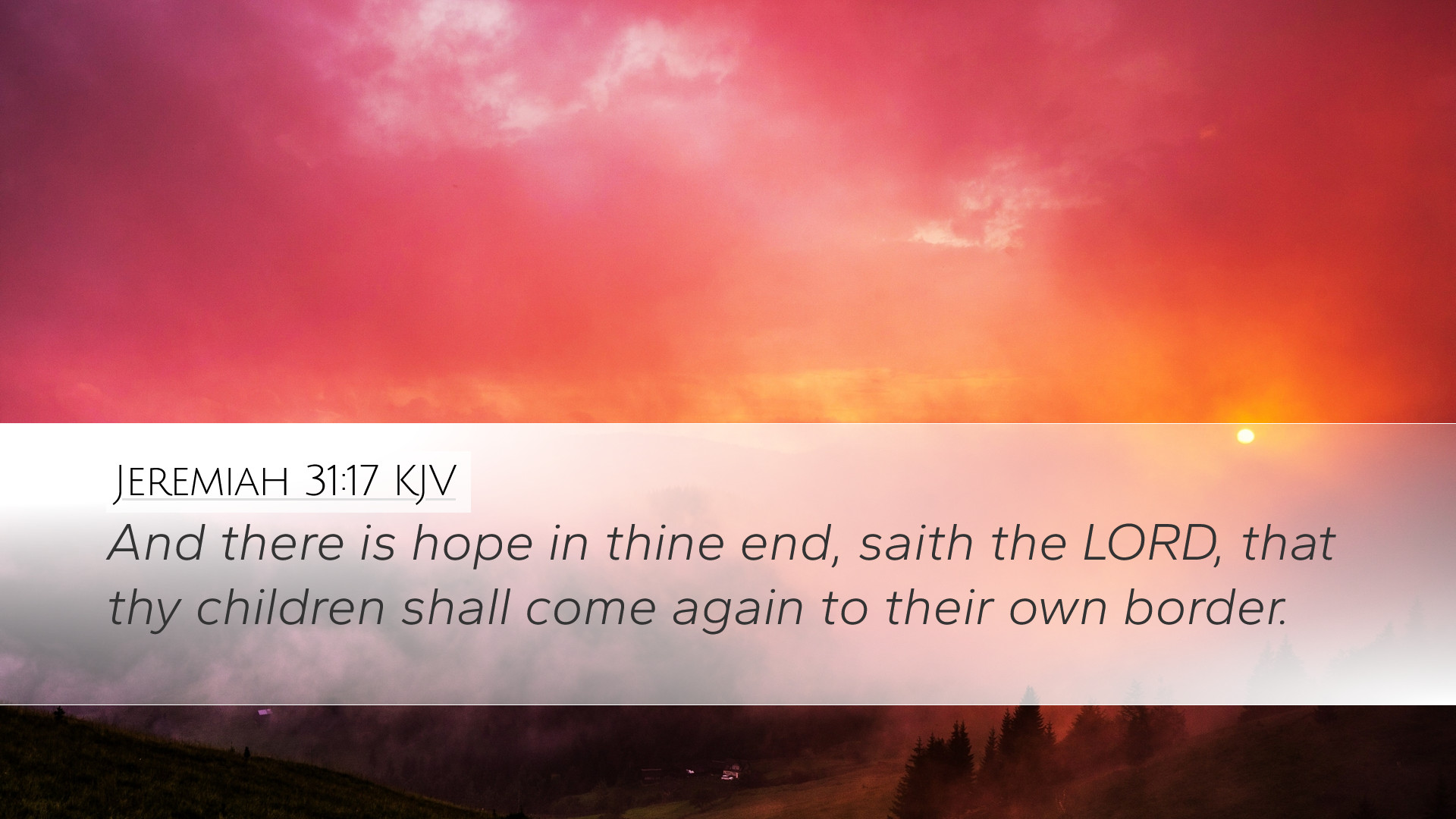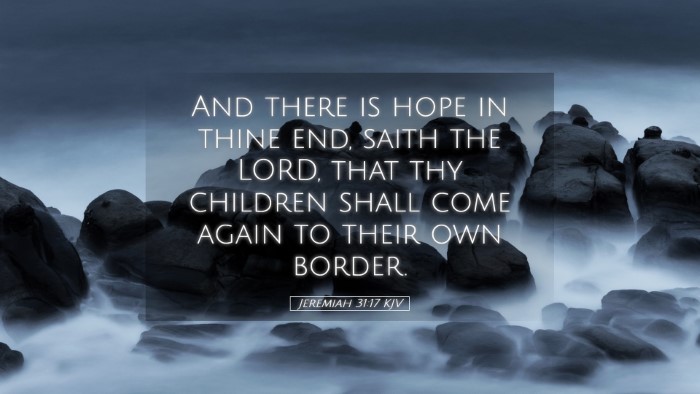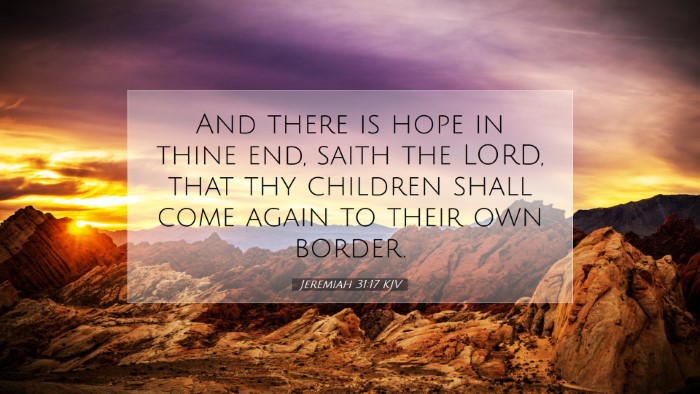Commentary on Jeremiah 31:17
Jeremiah 31:17 states, "And there is hope in thine end, saith the Lord, that thy children shall come again to their own border." In this verse, God conveys a profound message of hope and restoration to the exiled Israelites, which has relevance throughout biblical theology.
Contextual Background
The book of Jeremiah is primarily a prophecy that addresses the judgments due to Israel's idolatry and disobedience to God. Yet, amidst these predictions of doom, there are glimmers of hope that shine through the shadows of judgment. This promise in Jeremiah 31, particularly verse 17, serves as a beacon of assurance for the exiled people.
Hope in Suffering
Matthew Henry emphasizes that the notion of hope is central to human experience, particularly in suffering. The verse assures the Israelites that, despite their current predicament, there is a divine promise that their children shall return—indicating not only physical restoration but also a spiritual revival. Hope is portrayed as anchored in God’s faithfulness, reminding believers that no situation is too dire for God to redeem.
Children as Symbols of Future Generations
Albert Barnes takes note of the significance of children in this passage. Children symbolize the future and the continuation of God’s covenant with His people. The promise of their return suggests that God’s plan encompasses future generations, assuring that His mercy extends beyond the immediate circumstances. This aligns with the overarching theme in Scripture that God’s covenant is enduring and generational.
Understanding Restoration
According to Adam Clarke, the phrase "to their own border" illustrates the concept of boundaries established by God, which reflects identity and belonging. The restoration of the people to their homeland signifies a return not just to physical land but also to the heart of their identity as God’s chosen people.
- Divine Sovereignty: Clarke points out that God’s sovereignty in directing the return illustrates His control over history and nations.
- Faithfulness of God: God’s promises are reliable, as He ultimately fulfills His word to restore His people.
- Collective Identity: The community aspect of the return highlights the importance of collective worship and identity among the people of God.
Theological Implications
This verse serves not only as a message of hope for Israel but also carries broader theological implications for understanding God’s character. It emphasizes:
- God’s compassion towards His people, extending grace even when they fall away.
- The belief in restoration and return as foundational to the biblical narrative.
- The assurance of future hope in God’s redemptive plan, applicable to all believers across ages.
Practical Applications
For pastors, students, and theologians, this verse can be a wellspring of encouragement. In pastoral ministries, emphasizing hope can provide comfort to congregations facing trials. For students of theology, exploring the implications of this promise enhances understanding of God’s covenant faithfulness. Some practical applications include:
- Encouraging those in distress: Use this verse in counseling to provide hope to those who feel abandoned or lost.
- Emphasizing God’s promises: In preaching, one can illustrate how God’s assurances transcend situations, urging believers to trust in His plans.
- Communal worship: Foster a sense of community by reminding congregations of their collective identity as children of God, anchored in hope.
Conclusion
In conclusion, Jeremiah 31:17 encapsulates a profound promise of hope and restoration for God’s people. Drawing insights from the public domain commentaries highlights the text’s depth, offering a rich resource for theological reflection and practical application. It reassures God’s people that even in exile—literal or metaphorical—there is always a divine promise of return, restoration, and hope that lasts for generations to come.


